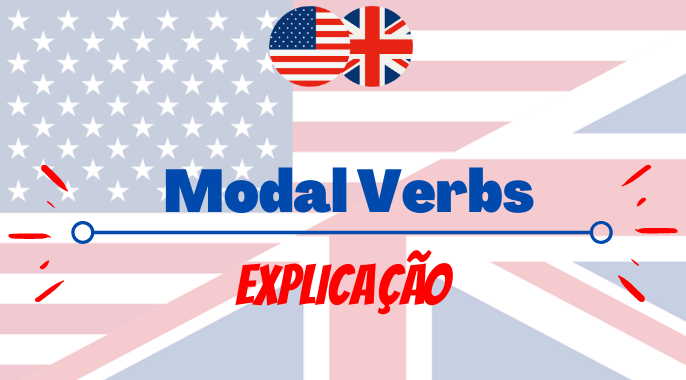Para que servem e como identificá-los
Vamos abordar a partir de agora o uso dos modal verbs. Eles são verbos especiais e com regras definidas. Vamos analisar o uso de cada um deles e suas determinadas funções. Sem dúvidas eles são muito utilizados em conversação de um modo geral. Eles estão sempre acompanhados de outros verbos para complementar a frase.
De um modo geral, eles servem para falar de habilidade, pedir permissão, probabilidade, possibilidade, obrigação, etc.
Quais são os detalhes dos modal verbs?
Os modal verbs não variam na terceira pessoa do singular = lembre-se do Simple Present – she works, he likes, etc. Nos modal verbs este S não existe.
O TO não é usado nos modal verbs com exceção do OUGHT TO.
A forma negativa segue sempre um NOT após o modal.
A forma interrogativa é sempre invertida – MODAL + SUJEITO.
Dois modais na mesma frase não é correto usar.
CAN – HABILIDADE
Mary can speak four languages – Japanese, English, Spanish and Portuguese.
My son can swim very well.
Paul can play the guitar.
Michael can’t dance.
Susan can’t sing very well.
Peter can’t drive a bus.
Can you cook?
CAN – PERMISSÃO
Can I use your bathoom, please?
Can I help you?
CAN – POSSIBILIDADE
Can – Smoking can cause lung cancer.
COULD – PAST OF CAN
COULD – HABILIDADE NO PASSADO
I could drive when I was 18.
Mozart could play the piano when he was 4 years old.
My father could cook when he was single.
COULD – PERMISSÃO – É MAIS FORMAL DO QUE CAN
Could you tell me what time it is, please?
Could you help me?
POSSIBILIDADE
You could fail in the exam because you didn’t have time to study.
MAY – POSSIBILIDADE
It may be sunny tomorrow then I intend to go to the club.
MAY – PERMISSÃO- MAIS FORMAL DO QUE CAN E COULD
May I help you, sir?
MIGHT – PERMISSÃO – MAIS FORMAL DO QUE CAN E COULD
Might I borrow your car, please?
MIGHT- POSSIBILIDADE – MAIS FORMAL DO QUE CAN E COULD
I might go to the movies next weekend.
Até aqui você está vendo alguns modal verbs bem interessantes e comuns no inglês – veja outros exemplos com outros modal verbs.
SHALL – CONVITE
Shall we go to the movies tonight?
SHOULD – CONSELHOS, SUGESTÕES
Your mother should go to the doctor.
You should stop drinking beer.
SHOULD / OUGHT TO = DEDUÇÃO LÓGICA
Mary should be at home now. It is nine pm.
Sharon ought to be at Mike’s house. It is his birthday.
MUST – OBRIGAÇÃO
We must work every day.
I must go to the dentist! I have a toothache.
MUST – DEDUÇÃO LÓGICA
She is in an ambulance. She must be a doctor.
WOULD – USADO PARA OFERECER ALGUMA COISA
Would you like a cup of coffee?
Would you like to eat a pizza?
Bom, como podemos ver são vários modal verbs, mas são fáceis de entender – é essencial praticar um pouco de exercícios a partir de agora.
Exercises – Escolha o correto:
A) Peter should – can – would go to the doctor because he is sick.
B) We can – must – ought to pay our bills.
C) Sharon could – can – would dance when she was ten years old.
D) Mike could – must – can swim very well.
E) Could – Must – Can’t you help me?
F) Can’t – May – Couldn’t you help me, sir?
G) Paul can – can’t – should go to the doctor because he has a headache.
H) Peter must – can – can’t drive because he is only 14 years old.
I) Would – Can – Could you like to go to the movies tonight?
J) Paul shouldn’t – can’t – must dance very well then she has classes every weekend.
K) Paul must – can’t – shouldn’t work every day – he has four children.
Você acabou de aprender sobre os modal verbs e abaixo há mais conteúdos importantes para consultar. Continue os estudos!

 Explicação sobre os Substantivos ➽ Explicação sobre os Substantivos ➽ |
 Erros comuns que atrasam o aprendizado ➽ Erros comuns que atrasam o aprendizado ➽ |
